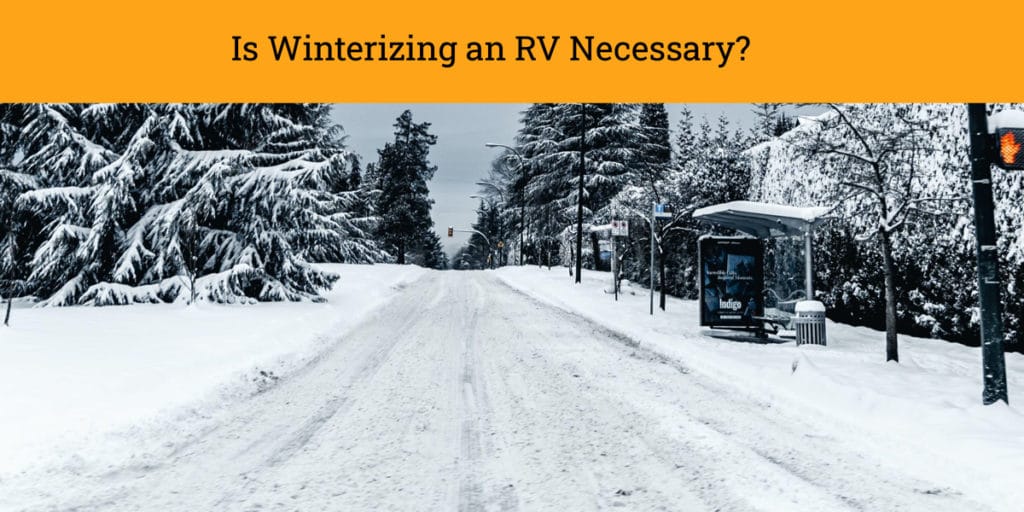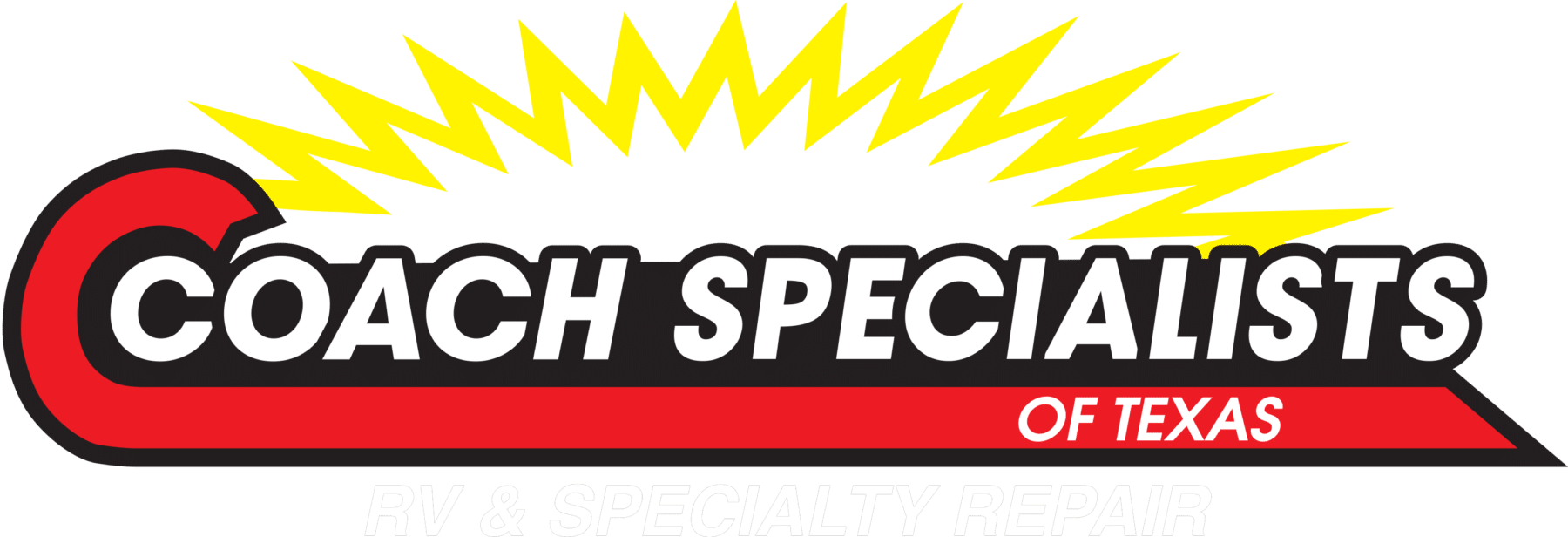Are you planning on covering up your RV this winter? Traveling through snow and frost often isn’t fun, and most RV owners pack up their favorite wheels and wait for the songbirds to return.
If your RV will be stored in temperatures below 32-degrees Fahrenheit, you should get it winterized to prevent any serious issues from arising. If you don’t winterize your RV, you’re destined to face a frozen water heater or even cracks in the tank. Only fixing these problems in the springtime is not only bothersome, but they may also end up costing you an arm and a leg if left too late.
RVs have a lot of plumbing and areas for water to hide, making winter problematic. Be sure while you’re cozy and warm inside your home, your RV is sitting pretty and well winterized when the icy weather hits.

How To Winterize Your RV for Hibernation
Water system
If you don’t want cracked pipes, look into winterizing your water system. Your owner’s manual should have guidelines for winterizing your unit’s specific water system. If you have a large RV, there will be a few extra steps to follow for dishwashers and washing machines, for example. You will most likely need to first ensure the water heater is off, then drain and flush all pipes. When filling the system with antifreeze, make sure it reaches all faucets and pour it down all the drains.
Batteries
For all your batteries, it’s essential to get the disconnect, and breaker switches all turned off, and remember to remove the negative cable first. Fully-charged batteries need to be stored in a warm and dry non-concrete spot. Again, have a look at your owner’s manual, especially for larger systems with multiple batteries. You may have to keep these in your RV and check on them regularly throughout winter.
Exterior
Don’t forget about the outside of your RV. Here are a few things to take note of:
- Clean and inspect all seals and seams. Repair and patch any cracks or problems. Find a good quality wax or protectant for your unit’s composite and then wax the entire exterior, so it’s ready for the weather.
- Don’t forget to clean and dry the awning too. You don’t want to have any mold creeping in.
- Lubricate the locks and hinges to avoid creaks, jams, and breaks.
- Lastly, clean the exterior of your air conditioning. Remove, clean, and replace the filters too.
Interior
Don’t forget to clean and sanitize the inside of your RV. You don’t want to find any furry, moldy surprises when spring rolls around.
- Empty drawers and cupboards.
- It’s a good idea to remove all clothing and blankets and store them in your house.
- Lift all cushions and mattresses to air them nicely.
- Unplug all electric appliances.
- Empty and defrost the fridge and freezer if necessary.
Dehumidify
If you will be storing your RV near a power source, running a dehumidifier a few times through winter is a good idea. Otherwise, look into buying moisture absorbing materials to leave inside the RV for the winter.
Wheels
Don’t let the sun scorch your tires, cover them up. This will also help prevent dry rot.
Cold-Climate Traveling Tips
If you are one of the adventurous few that are happy to travel through extreme temperatures, we also have a few tips on how to prepare your RV for cold-climate trips:
- Heat your hoses: Wrap your sewer lines and water hoses with added insulation or buy heated water hoses. This will help prevent fluid inside the hoses from freezing.
- Know your heat: Understand which heating system – the HVAC or furnace – will give you the most effective heat while traveling through low temps.
- Insulation: To stay cozy, bring in extra insulation such as an RV insulation skirt, or you can run a small space heater under your coach. You can even pack snow to make a natural insulation skirt – the snow can create a thermal block and keep your rig warm.
- Seal up tight: To keep the heat in and the cold out, make sure your windows and ceiling vents or fans are firmly closed.
- Prepare for the cold: Bring along small space heaters for inside your RV or for under the coach and, of course, lots of cozy blankets.
- Winter driving: Tire chains help make the tires grip better in snowy and icy conditions, and remember to drive slow and brake early and easy.
Although many of these winterizing tasks can be done at home, the best way to protect your RV from preventable repairs is by taking your vehicle to a professional RV service and repair center to be expertly winterized.
Give us a call at Coach Specialists before you’re ready to hit the road again in spring, and for all necessary RV services. Coach Specialists are also preferred insurance repair facilities if you find yourself with a fender bender or damage due to a natural disaster. We work with all the major carriers including GEICO, Nationwide, USAA, State Farm, Germania, just to name a few. We pride ourselves on excellent communication with our clients and fast, superior RV renovation, and repair work.
Trust us to get your RV ready for any extreme weather this season.
